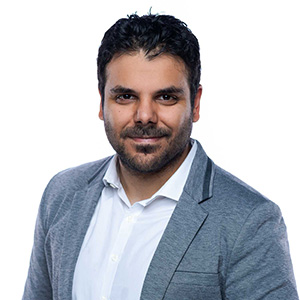Why South Africa Leads Annual Mobile Payments Activity Index for MEA
South Africa is at pole position on the annual mobile payments activity index. This was made known through Evina, a cybersecurity for Carrier Billing company and Telecoming, a tech firm developing DCB experiences, in its 2022 edition of the DCB Index at the end of December 2022.
This initiative is part of the strategic alliance between the two companies to place Direct Carrier Billing at the forefront of the payments industry and reinforce their commitment to developing a transparent, secure, and stable mobile economy.
The DCB Index provides insights into the Direct Carrier Billing market of countries in the Middle East and Africa region (MEA), ranking them according to their current DCB status and potential to further develop this growth-boosting mobile payment method.

Direct Carrier Billing is a payment technology that allows mobile users to pay for any service by charging the purchase to their carrier bill.
Read also : Ghanaian Fintech Startup Bezo Money Raises US750,000, Acquires 100,000 Users
The classification ranges from 1 to 5, with 1 being the lowest and 5 the highest DCB potential. The ranking is based on 4 main factors: mobile players’ actions to prevent fraud on DCB, their bent to innovate in DCB, the country’s overall DCB penetration and the DCB growth potential.
For ready reference, the results of the Evina & Telecoming DCB Index reveal that South Africa is the leading country in the ranking, with the highest score (3.4 out of 5). All mobile operators are deploying DCB, and there is an overall increase in fraud protection compared to last year.
In the Middle East and North Africa, Morocco and UAE steal the show, surpassing last year’s leader Bahrain. Morocco (3.3) has significantly increased DCB deployment and invested in cybersecurity measures to protect this payment technology, while in UAE (3.2) all mobile operators offer end users DCB to pay for various types of services yet major organizations still have to implement adequate protection.
Nigeria (3.1) and DR Congo (3.0) follow close behind, differentiating themselves by opening more opportunities for DCB deployment and increasing their level of protection against fraud attempts on Direct Carrier Billing.
“The DCB Index seeks to provide the market with a standard indicator of an industry we know well. MEA is an extraordinarily dynamic and very mature region regarding mobile payments. In fact, the average level of innovation in DCB has increased by 13% compared to 2021 with the enlargement of new uses of this payment technology, such as sports subscriptions, that has grown considerably during the last year.”, said Roberto Monge, Chief Operations Officer at Telecoming. And he added, “we want to go along with operators and brands that wish to develop the market in a safe, sustainable, and profitable way. The countries analyzed have demonstrated their commitment to Direct Carrier Billing as a strategic growth lever for the so-called mobile economy in the region.”
Read also : Business in the Era of Everything-as-a-Service (XaaS)
David Lotfi, CEO of Evina explained that “the overall fraud prevention of mobile players across the Middle East and African region has increased by 0.2 compared to 2021, showing a collective willingness to safeguard the powerful payment tool that is Direct Carrier Billing. Businesses have yet to understand that DCB can become even more powerful than credit cards and that mobile operators already have all the advantages to elevate DCB and become the biggest fintech companies. DCB is without a doubt a major opportunity for the African continent alongside mobile money, if protected with the right cybersecurity solutions.
“This DCB Index has been created with the sole purpose of giving mobile players an overview of the development of DCB in the MEA region in order to better understand how to improve their business in their own country, or what conditions to consider when deploying in these countries.”
Kelechi Deca

Kelechi Deca has over two decades of media experience, he has traveled to over 77 countries reporting on multilateral development institutions, international business, trade, travels, culture, and diplomacy. He is also a petrol head with in-depth knowledge of automobiles and the auto industry



